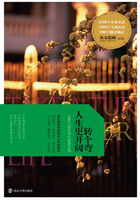No sooner did I hear the voice than a wrinkle-faced, six-foot-tall, white-haired pogo stick of a man was greeting us at the door, swooping his big, open hand and strong arm across the doorway, inviting us in, “I’m Charlie. This is my wife, Emma. Come in, come in.”
When Beau heard Charlie’s friendly, enthusiastic voice, his entire body went into his customary wagging frenzy and lean against your thigh position, waiting for a petting, which was immediately forthcoming from Charlie. As we walked into the room, a frail but lively eighty, violet-haired Emma sat in bed, smiling, patting her hand on the bed. All she had to do was pat once, and Beau, leashed and always obedient, was up on the bed lying down beside her, licking her face. Her eyes were full of tears as Charlie told us that he and Emma had immigrated to the United States from Germany during World War II and had to leave their beloved Doberman, Max, behind. Max, according to Charlie, was the spitting image of Beau.
The next door, room 114, was home to Katherine, a woman in her seventies who had stopped talking for a few months earlier and had been living in a catatonic state in her wheelchair for the past month. No amount of love, hugs, talking or sitting had been able to stir her. When Beau and I walked into her room, a small light was on next to her bed and the shades were pulled. She was sitting in her wheelchair, her back toward us, slouched over, facing the viewless window.
Beau was pulling ahead of me with his leash. Before I could get around kneeling down in front of her, he was at her left side, with his head in her lap. I pulled a chair up in front of her, sat down and said hello. No response. In the fifteen minutes that Beau and I sat with Katherine, she never said a word and never moved. Surprising as that may be, more surprising was that Beau never moved either. He stood the entire fifteen minutes, his long chin resting on her lap.
If you knew Beau, you’d know that even ten seconds was an eternity to wait for a petting. Not here. He was as frozen as Katherine, head glued to her lap. I became uncomfortable with the lack of life in this woman.When the clock chimed 2:30 p.m., I rushed to say good-bye, stood up and pulled the reluctant Beau out.
I asked one of the nurses why Katherine was catatonic. “We don’t know why. Sometimes it just happens when elderly people have family who show no interest in them. We just try to make her as comfortable as possible.”
All the wonderful people and animals who blessed my life flashed in front of my eyes, and then they were gone. I felt what I imagined Katherine must be feeling lonely, lost and forgotten. I was determined to find a way through to her.
Every Monday thereafter, Beau and I made our rounds to the hospitality room, stopping to make special visits in room 112 to visit Charlie and Emma, and in room 114 to sit with Katherine. Always the same response—Charlie waving us in and Emma patting the bed, waiting for Beau’s licks, both so alive. And then on to Katherine, sitting desolately, no sign of life except for her shallow breathing.
Each visit I attempted to engage Katherine in conversation. No response. I grew more and more frustrated with Katherine, not content with just “being” with her. Yet here was Beau, meditative dog, teaching me how to “be” and love quietly, assuming “the position” for the fifteen minutes we sat at each visit.
On our fourth visit, I was ready to bypass Katherine’s room, but Beau had other plans. He pulled me into Katherine’s room and took his familiar pose on her left side, head on lap. I acquiesced, but since I had a business meeting later in the afternoon with which I was preoccupied, I decided to cut short our usual fifteen minutes with Katherine to five. Instead of talking, I remained quiet, focusing inwardly on my upcoming meeting. Surely she’d never notice or care. As I stood up to walk out and began to pull Beau away, he wouldn’t budge.
And then the most miraculous thing happened. Katherine’s hand went up to the top of Beau’s head and rested there. No other movement, just her hand. Instead of Beau’s customary response of nose nuzzling and increased body wagging, he continued to stand like a statue, never moving from his spot.
I sat back down in silent shock, and for the next ten precious minutes, reveled in the stream of life flowing between Katherine’s hand and Beau’s head. As the clock chimed half-past two, marking the end of our fifteen minutes, Katherine’s hand gently slid back into her lap, and Beau turned to walk out of the door.
It’s been ten years since that visit and eight years since Beau died in my arms from a stroke. Love has many ways of showing its face. Each time I am ready to walk away from a person on whom I’ve given up, I am reminded of the power of Beau loves persistence with Katherine and with me. If Beau can give an extra ten minutes, surely I can too.
每周一下午2点,我和博都要去密尔沃基东北部的银泉康复中心,为住在那里的老人们进行一小时的宠物治疗。我们穿过走廊走向接待室,与每位相遇的人打招呼。在接待室里休养的人都会过来爱抚博—— 一只活泼可爱的德国短毛猎犬。他今年10岁,体重99磅,很招人喜欢。你们很难想象,8年前,这只狗来到我家门阶上,被打得伤痕累累,一见到人就吓得仰躺在地,四脚朝天,抬起腿来就撒尿,直到人们抚摸它,柔声细语地安慰它,它才会有安全感。
在我们第一次拜访康复中心,路经淡黄色的1号走廊时,从112号房间里传出一位老人激动的声音,带着浓重的德国口音:“玛,玛,来了一条德国狗!这里,有只德国狗!”
随即,一位皱纹满面、约6英尺高的白发瘦高老人出现在门口,他张开有力的双臂,伸出大手,邀我们进去。“我是查理,这是我的妻子埃玛。请进,请进。”















